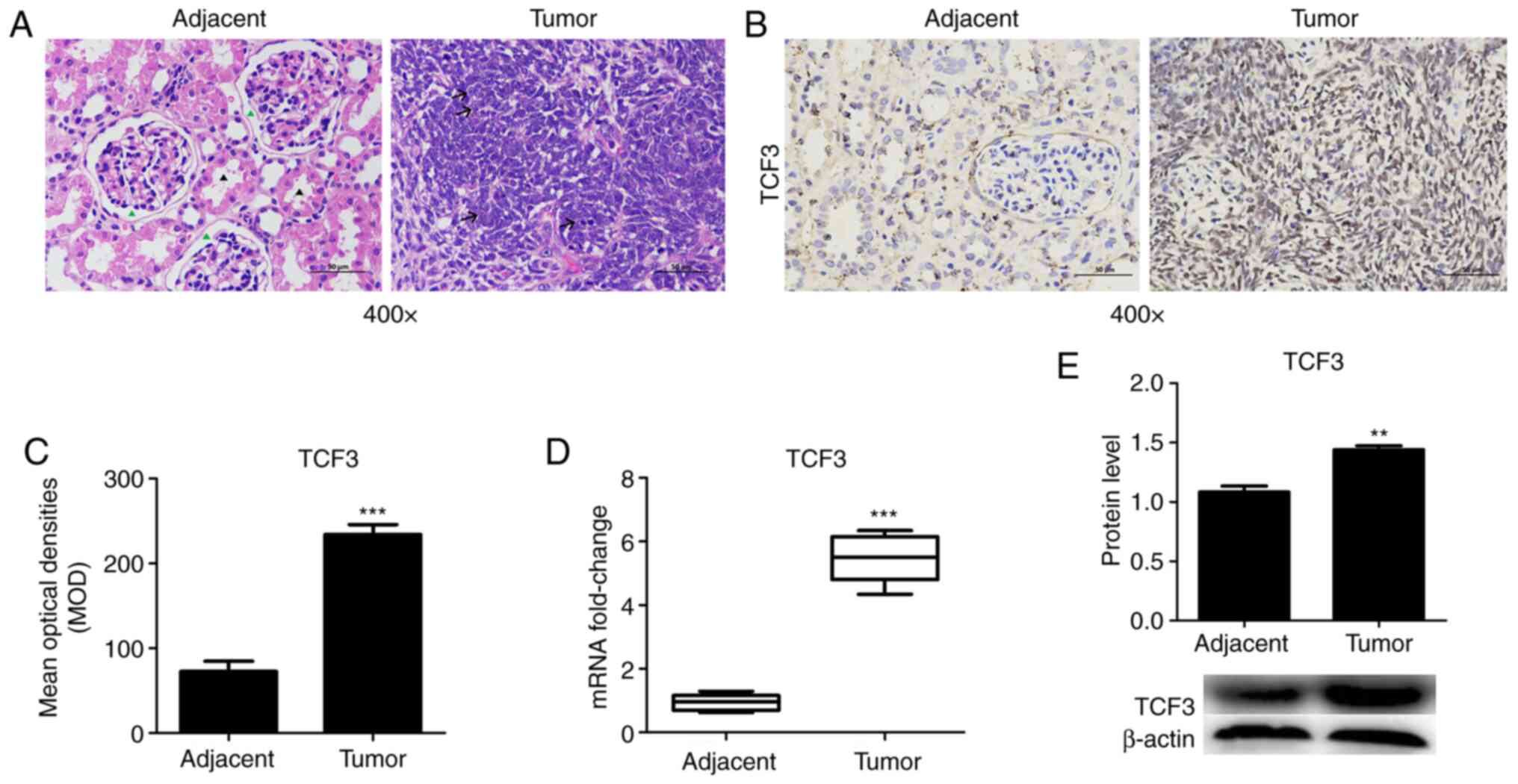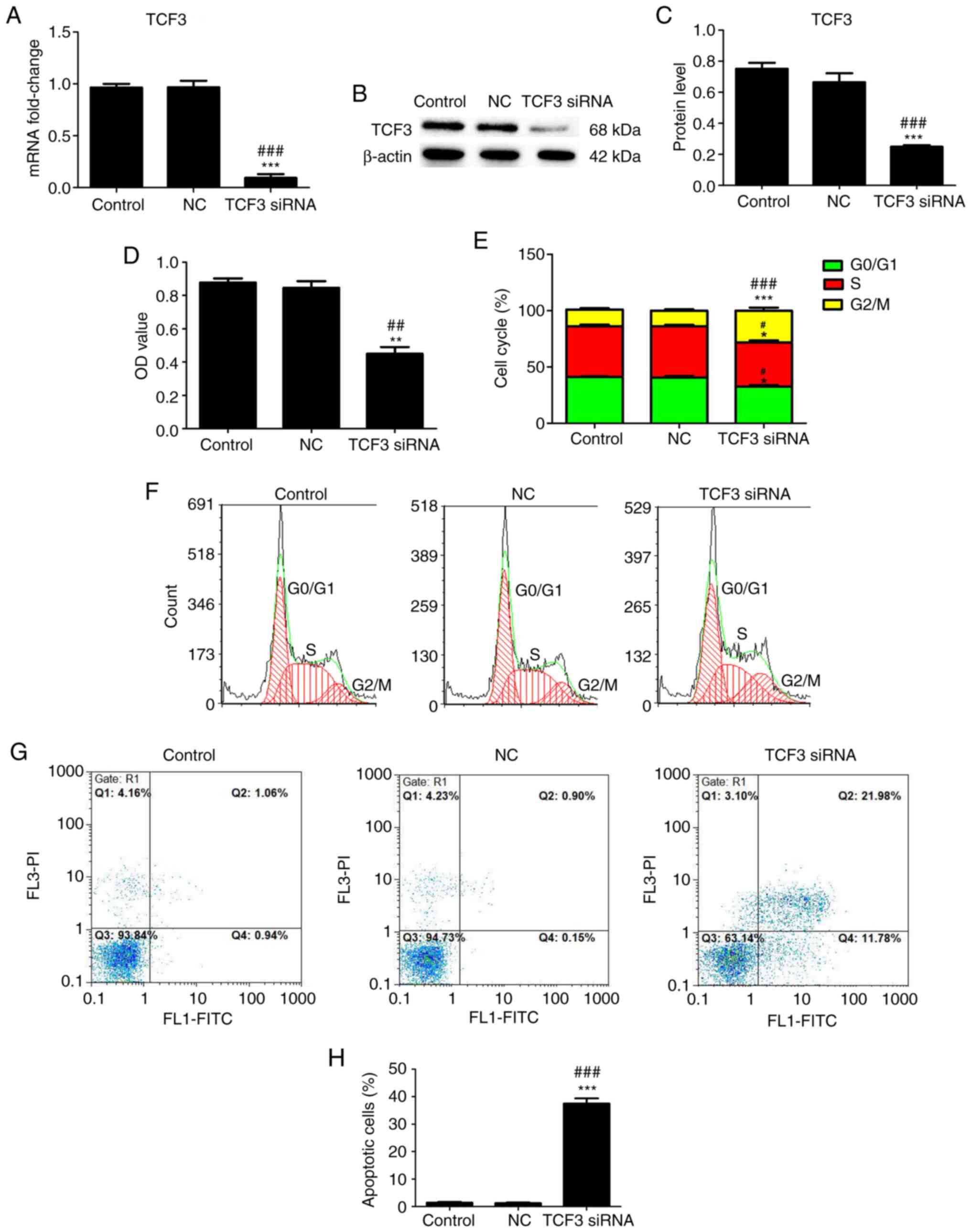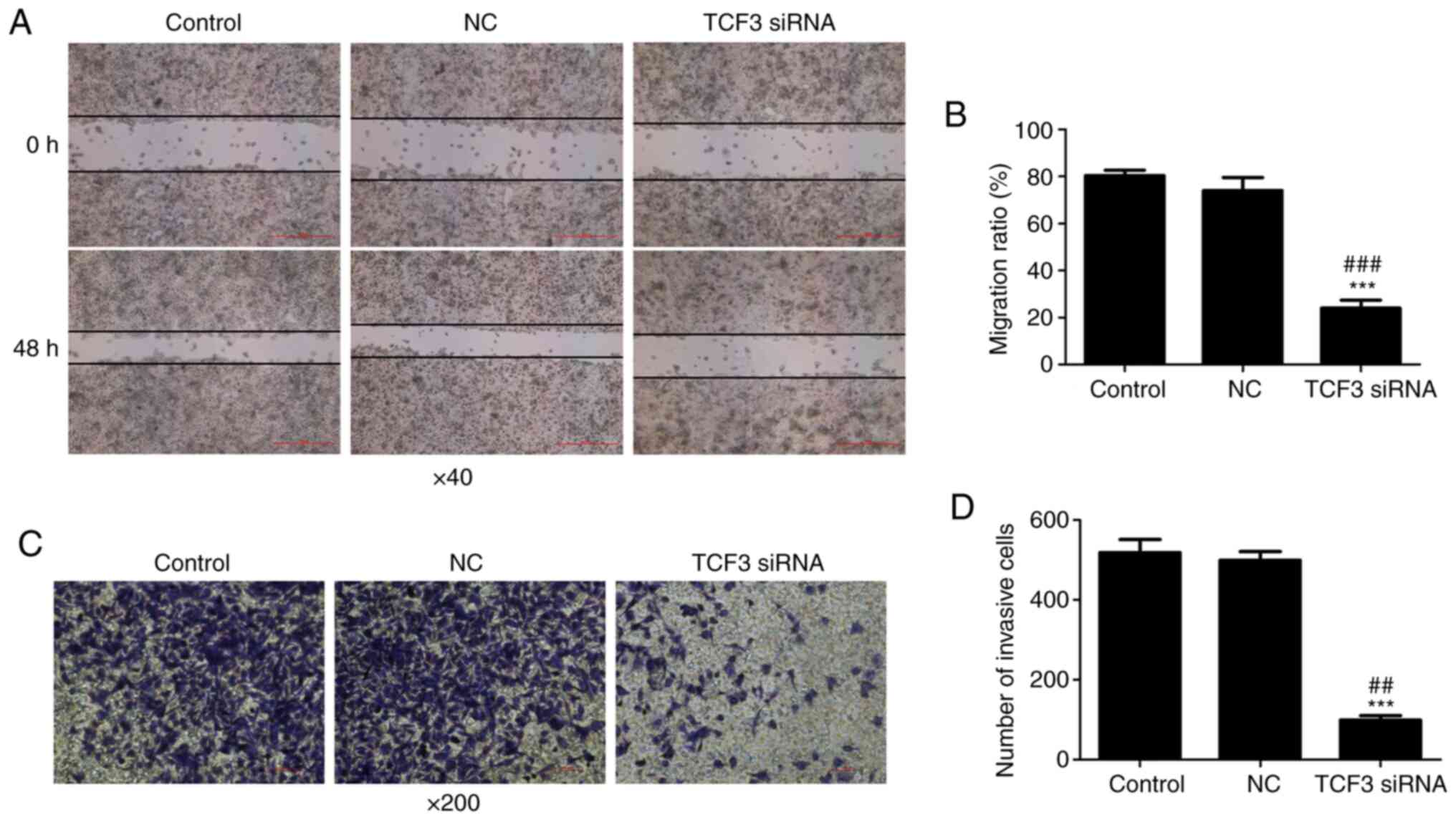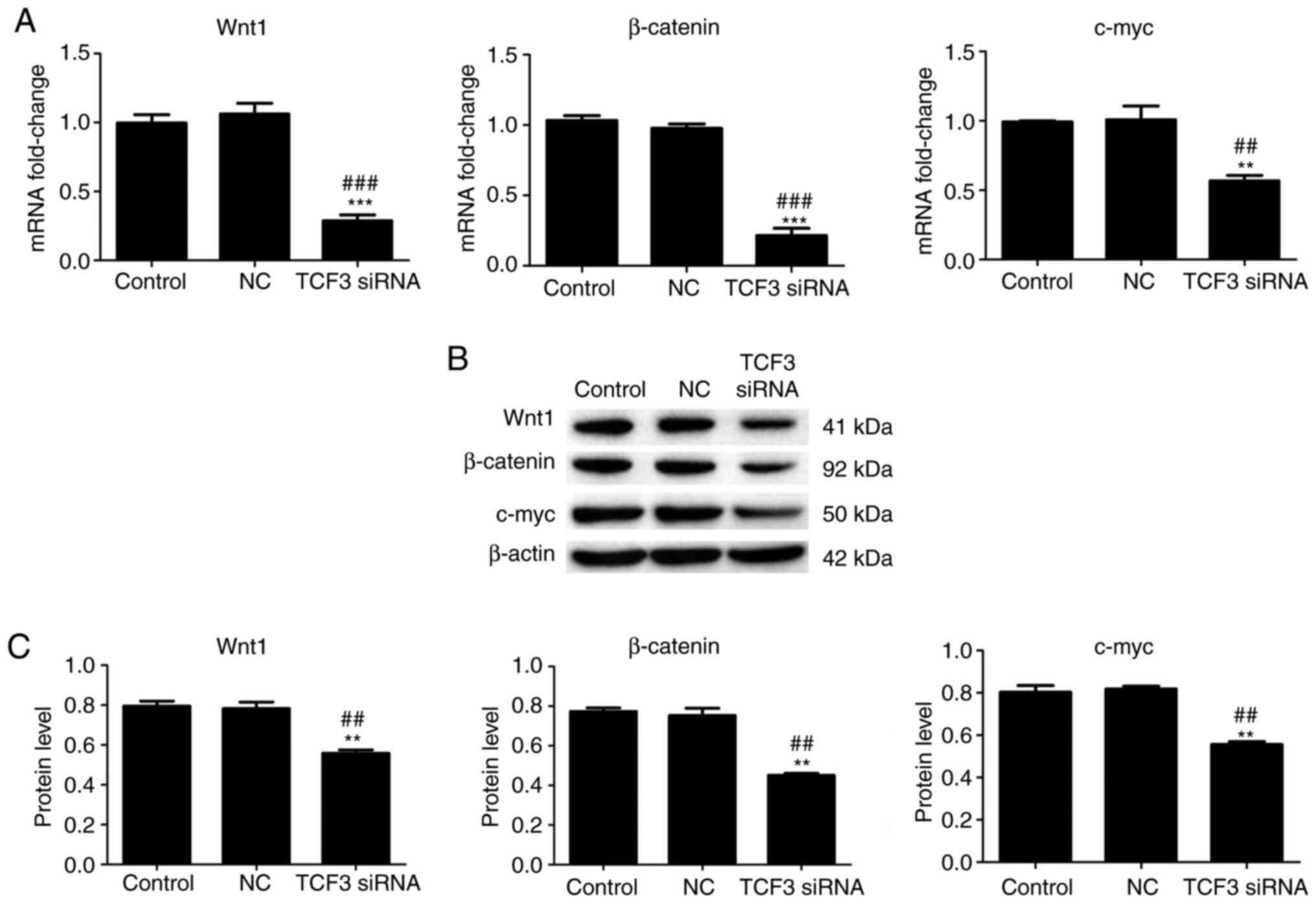|
1
|
Pastore G, Znaor A, Spreafico F, Graf N,
Pritchard-Jones K and Steliarova-Foucher E: Malignant renal tumours
incidence and survival in European children (1978–1997): Report
from the automated childhood cancer information system project. Eur
J Cancer. 42:2103–2114. 2006. View Article : Google Scholar : PubMed/NCBI
|
|
2
|
Davidoff AM: Wilms tumor. Adv Pediatr.
59:247–267. 2012. View Article : Google Scholar : PubMed/NCBI
|
|
3
|
Brok J, Lopez-Yurda M, Tinteren HV, Treger
TD, Furtwängler R, Graf N, Bergeron C, van den Heuvel-Eibrink MM,
Pritchard-Jones K, Olsen ØE, et al: Relapse of Wilms' tumour and
detection methods: A retrospective analysis of the 2001 Renal
Tumour Study Group-International Society of Paediatric Oncology
Wilms' tumour protocol database. Lancet Oncol. 19:1072–1081. 2018.
View Article : Google Scholar : PubMed/NCBI
|
|
4
|
Kaste SC, Dome JS, Babyn PS, Graf NM,
Grundy P, Godzinski J, Levitt GA and Jenkinson H: Wilms tumour:
Prognostic factors, staging, therapy and late effects. Pediatr
Radiol. 38:2–17. 2008. View Article : Google Scholar : PubMed/NCBI
|
|
5
|
Lee JS, Padilla B, DuBois SG, Oates A,
Boscardin J and Goldsby RE: Second malignant neoplasms among
children, adolescents and young adults with Wilms tumor. Pediatric
Blood Cancer. 62:1259–1264. 2015. View Article : Google Scholar : PubMed/NCBI
|
|
6
|
Travis A, Amsterdam A, Belanger C and
Grosschedl R: LEF-1, a gene encoding a lymphoid-specific protein
with an HMG domain, regulates T-cell receptor alpha enhancer
function [corrected]. Genes Dev. 5:880–894. 1991. View Article : Google Scholar : PubMed/NCBI
|
|
7
|
van de Wetering M, Oosterwegel M, Dooijes
D and Clevers H: Identification and cloning of TCF-1, a T
lymphocyte-specific transcription factor containing a
sequence-specific HMG box. EMBO J. 10:123–132. 1991. View Article : Google Scholar : PubMed/NCBI
|
|
8
|
Merrill BJ, Pasolli HA, Polak L, Rendl M,
García-García MJ, Anderson KV and Fuchs E: Tcf3: A transcriptional
regulator of axis induction in the early embryo. Development.
131:263–274. 2004. View Article : Google Scholar : PubMed/NCBI
|
|
9
|
Lin G, Zhao L, Yin F, Lan R, Li L, Zhang
X, Zhang H and Yang B: TCF3 inhibits F9 embryonal carcinoma growth
by the down-regulation of Oct4. Oncol Rep. 26:893–899.
2011.PubMed/NCBI
|
|
10
|
Kehl T, Schneider L, Kattler K, Stöckel D,
Wegert J, Gerstner N, Ludwig N, Distler U, Tenzer S, Gessler M, et
al: The role of TCF3 as potential master regulator in blastemal
Wilms tumors. Int J Cancer. 144:1432–1443. 2019. View Article : Google Scholar : PubMed/NCBI
|
|
11
|
Huang H and He X: Wnt/beta-catenin
signaling: New (and old) players and new insights. Curr Opin Cell
Biol. 20:119–125. 2008. View Article : Google Scholar : PubMed/NCBI
|
|
12
|
Major MB, Camp ND, Berndt JD, Yi X,
Goldenberg SJ, Hubbert C, Biechele TL, Gingras AC, Zheng N, Maccoss
MJ, et al: Wilms tumor suppressor WTX negatively regulates
WNT/beta-catenin signaling. Science. 316:1043–1046. 2007.
View Article : Google Scholar : PubMed/NCBI
|
|
13
|
Huelsken J and Behrens J: The Wnt
signalling pathway. J Cell Sci. 115((Pt 21)): 3977–3978. 2002.
View Article : Google Scholar : PubMed/NCBI
|
|
14
|
Moon RT, Kohn AD, De Ferrari GV and Kaykas
A: WNT and beta-catenin signalling: Diseases and therapies. Nat Rev
Genet. 5:691–701. 2004. View
Article : Google Scholar : PubMed/NCBI
|
|
15
|
Uematsu K, He B, You L, Xu Z, McCormick F
and Jablons DM: Activation of the Wnt pathway in non small cell
lung cancer: Evidence of dishevelled overexpression. Oncogene.
22:7218–7221. 2003. View Article : Google Scholar : PubMed/NCBI
|
|
16
|
Slyper M, Shahar A, Bar-Ziv A, Granit RZ,
Hamburger T, Maly B, Peretz T and Ben-Porath I: Control of breast
cancer growth and initiation by the stem cell-associated
transcription factor TCF3. Cancer Res. 72:5613–5624. 2012.
View Article : Google Scholar : PubMed/NCBI
|
|
17
|
Livak KJ and Schmittgen TD: Analysis of
relative gene expression data using real-time quantitative PCR and
the 2(-Delta Delta C(T)) method. Methods. 25:402–408. 2001.
View Article : Google Scholar : PubMed/NCBI
|
|
18
|
Yi F, Pereira L, Hoffman JA, Shy BR, Yuen
CM, Liu DR and Merrill BJ: Opposing effects of Tcf3 and Tcf1
control Wnt stimulation of embryonic stem cell self-renewal. Nat
Cell Biol. 13:762–770. 2011. View
Article : Google Scholar : PubMed/NCBI
|
|
19
|
Shah M, Rennoll SA, Raup-Konsavage WM and
Yochum GS: A dynamic exchange of TCF3 and TCF4 transcription
factors controls MYC expression in colorectal cancer cells. Cell
Cycle. 14:323–332. 2015. View Article : Google Scholar : PubMed/NCBI
|
|
20
|
Ben-Porath I, Thomson MW, Carey VJ, Ge R,
Bell GW, Regev A and Weinberg RA: An embryonic stem cell-like gene
expression signature in poorly differentiated aggressive human
tumors. Nat Genet. 40:499–507. 2008. View
Article : Google Scholar : PubMed/NCBI
|
|
21
|
Cavallo RA, Cox RT, Moline MM, Roose J,
Polevoy GA, Clevers H, Peifer M and Bejsovec A: Drosophila Tcf and
Groucho interact to repress Wingless signalling activity. Nature.
395:604–608. 1998. View
Article : Google Scholar : PubMed/NCBI
|
|
22
|
Stamos JL and Weis WI: The β-catenin
destruction complex. Cold Spring Harb Perspect Biol. 5:a0078982013.
View Article : Google Scholar : PubMed/NCBI
|
|
23
|
Arce L, Yokoyama NN and Waterman ML:
Diversity of LEF/TCF action in development and disease. Oncogene.
25:7492–7504. 2006. View Article : Google Scholar : PubMed/NCBI
|
|
24
|
Zhao H, Zhao C, Li H, Zhang D and Liu G:
E2A attenuates tumor-initiating capacity of colorectal cancer cells
via the Wnt/beta-catenin pathway. J Exp Clin Cancer Res.
38:2762019. View Article : Google Scholar : PubMed/NCBI
|
|
25
|
Chan CC, To KF, Yuen HL, Shing Chiang AK,
Ling SC, Li CH, Cheuk DK, Li CK and Shing MM: A 20-year prospective
study of Wilms tumor and other kidney tumors: A report from Hong
Kong pediatric hematology and oncology study group. J Pediatr
Hematol Oncol. 36:445–450. 2014. View Article : Google Scholar : PubMed/NCBI
|
|
26
|
Pajic A, Spitkovsky D, Christoph B,
Kempkes B, Schuhmacher M, Staege MS, Brielmeier M, Ellwart J,
Kohlhuber F, Bornkamm GW, et al: Cell cycle activation by c-myc in
a burkitt lymphoma model cell line. Int J Cancer. 87:787–793. 2000.
View Article : Google Scholar : PubMed/NCBI
|
|
27
|
Doose G, Haake A, Bernhart SH, López C,
Duggimpudi S, Wojciech F, Bergmann AK, Borkhardt A, Burkhardt B,
Claviez A, et al: MINCR is a MYC-induced lncRNA able to modulate
MYC's transcriptional network in Burkitt lymphoma cells. Proc Natl
Acad Sci USA. 112:E5261–E5270. 2015. View Article : Google Scholar : PubMed/NCBI
|
|
28
|
Trowbridge JJ, Xenocostas A, Moon RT and
Bhatia M: Glycogen synthase kinase-3 is an in vivo regulator of
hematopoietic stem cell repopulation. Nat Med. 12:89–98. 2006.
View Article : Google Scholar : PubMed/NCBI
|
|
29
|
Ying Y and Tao Q: Epigenetic disruption of
the WNT/beta-catenin signaling pathway in human cancers.
Epigenetics. 4:307–312. 2009. View Article : Google Scholar
|
|
30
|
Lustig B and Behrens J: The Wnt signaling
pathway and its role in tumor development. J Cancer Res Clin Oncol.
129:199–221. 2003. View Article : Google Scholar : PubMed/NCBI
|
|
31
|
Nusse R, Brown A, Papkoff J, Scambler P,
Shackleford G, McMahon A, Moon R and Varmus H: A new nomenclature
for int-1 and related genes: The Wnt gene family. Cell. 64:2311991.
View Article : Google Scholar : PubMed/NCBI
|
|
32
|
Yost C, Torres M, Miller JR, Huang E,
Kimelman D and Moon RT: The axis-inducing activity, stability, and
subcellular distribution of beta-catenin is regulated in Xenopus
embryos by glycogen synthase kinase 3. Genes Dev. 10:1443–1454.
1996. View Article : Google Scholar : PubMed/NCBI
|
|
33
|
Chodaparambil JV, Pate KT, Hepler MR, Tsai
BP, Muthurajan UM, Luger K, Waterman ML and Weis WI: Molecular
functions of the TLE tetramerization domain in Wnt target gene
repression. EMBO J. 33:719–731. 2014. View Article : Google Scholar : PubMed/NCBI
|


















